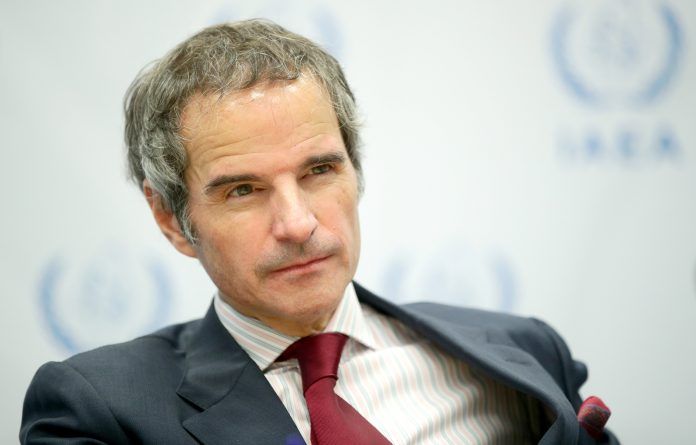
By Francois Murphy
VIENNA, Jan 11 (Reuters) – World powers and Iran have weeks to revive the 2015 nuclear deal after Tehran began to enrich uranium at higher levels and Iran’s parliament threatened to curb the access of U.N. inspectors next month, the head of the global atomic watchdog said on Monday.
Iran started pressing ahead with plans to enrich uranium to 20% fissile strength at its underground Fordow nuclear plant last week, a level Tehran achieved before striking the deal with world powers to contain its disputed nuclear ambitions.
The Islamic Republic’s latest breach of the nuclear agreement since President Donald Trump withdrew the United States from it in 2018 may complicate efforts by President-elect Joe Biden, who takes office on Jan. 20, to rejoin the pact.
“It’s not for me to say what to do, but it’s clear that we don’t have many months ahead of us, but rather weeks,” Rafael Grossi said in an interview for the Reuters Next conference when asked how much time was left to reach an agreement on bringing Iran back into compliance.
Iran’s parliament passed legislation in December that obliges the government to enrich to 20% purity.
That law also says that if obstacles to Iran’s sale of oil are not lifted and banking transactions normalised by Feb. 21 – both areas have been crippled by Trump’s sanctions – it will end the sweeping inspection powers given to the IAEA by the nuclear deal, limiting inspections to declared nuclear sites only.
The IAEA currently has the power to carry out short-notice inspections at locations not declared to it by Iran, given that under the deal Tehran is applying the U.N. watchdog’s so-called Additional Protocol, an agreement between the agency and member states that grants inspectors more intrusive access.
“I wouldn’t like to receive a communication that because of the deadline of Feb. 21 the presence of my inspectors in Iran is going to be reduced,” Grossi said, likening any such a move to North Korea’s past expulsion of IAEA inspectors.
“That would be bad news.”
Tehran began violating the 2015 accord in 2019 in a step-by-step response to Trump’s pull-out in 2018 and his reimposition of U.S. sanctions that had been rescinded under the deal.
[aesop_image img=”https://kayhanlife.com/wp-content/uploads/2020/07/2020-07-12T100438Z_119268284_OWSCKPL7HKKGI6Z3V8XF59JDJCIYSB_RTRMADP_BASEIMAGE-960X540_INTERNATIONAL-POLITICS-IRAN-NUCLEAR-FA.jpg” panorama=”off” credit=”Iran map with its nuclear facilities. REUTERS./” align=”center” lightbox=”off” captionsrc=”custom” captionposition=”left” revealfx=”off” overlay_revealfx=”off”]
RAPID ENRICHMENT PROGRESS
The 2015 agreement’s main objective was to extend the time Iran would need to produce enough fissile material for a nuclear bomb – if it chose to – to at least a year from roughly 2-3 months. It also lifted international sanctions against Tehran.
“I must take it (the threat of more limited access) seriously because it is the law,” Grossi said, referring to the legislation, adding that he had to believe the Iranian government intended to implement it.
The Argentine diplomat said Iran was progressing “quite rapidly” in moving to 20% enrichment and that based on estimates it would be able to produce about 10 kg a month at Fordow, which is built under a mountain to withstand any aerial attack.
Iran previously breached the deal’s 3.67% limit on the purity to which it can enrich uranium, but it had only gone up to 4.5% so far, well short of the 20% level and of the 90% that is bomb-grade. Iran denies any intent to weaponise enrichment.
Grossi stressed that quick diplomacy would be needed to set out an additional text on how to reverse Iran’s breaches.
Biden has said he will bring the United States back into the deal – reached when he was vice president under then-President Barack Obama – if Iran resumes strict compliance with it.
“There will have to be a clear understanding on how the initial terms and provisions of the JCPOA (nuclear deal) are going to be recomplied with…, putting the toothpaste back in the tube,” Grossi said.
He thought this would be possible by Feb. 21.

